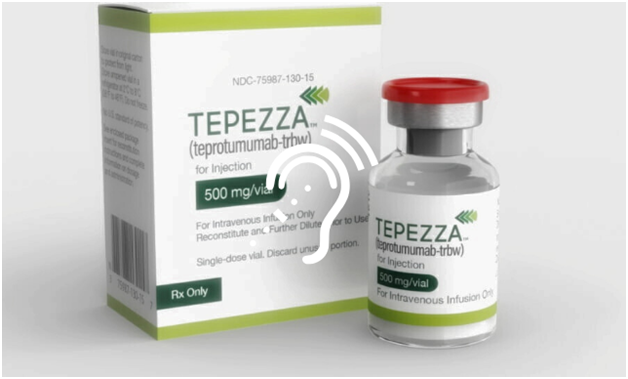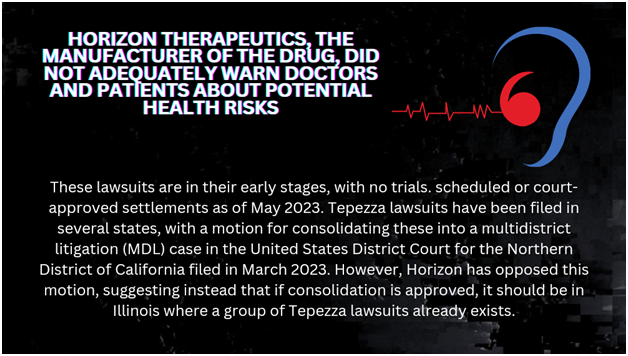Lawsuits related to Tepezza have surfaced, claiming that Horizon Therapeutics, the drug's manufacturer, failed to sufficiently caution healthcare providers and patients about potential health hazards. These legal proceedings predominantly concern individuals who have suffered permanent hearing loss or tinnitus subsequent to using Tepezza, an FDA-approved medication for the treatment of thyroid eye disease (TED) that was introduced in January 2020.
These lawsuits are in their preliminary stages, with no trials scheduled or court-approved settlements as of May 2023. Tepezza lawsuits have been initiated in various states, and in March 2023, a motion was filed to consolidate them into a multidistrict litigation (MDL) case in the United States District Court for the Northern District of California. However, Horizon has opposed this motion, suggesting instead that if consolidation is approved, it should take place in Illinois, where a cluster of Tepezza lawsuits already exists.
Central aspects of these lawsuits include the absence of warnings about the risk of hearing loss or tinnitus on the drug’s label and the potential permanence of these issues. While clinical trials reported hearing problems in around 10% of patients, a 2021 study suggested the risk could be as high as 65%.
Filing a Tepezza lawsuit might enable victims to seek compensation for medical expenses, pain and suffering, lost income, and diminished quality of life. It could also serve as a warning to other patients about the dangers associated with Tepezza. Given that permanent hearing loss or tinnitus can significantly impact an individual’s well-being, leading to feelings of frustration, anxiety, and depression, the stakes in these lawsuits are considerable.
To qualify for filing a Tepezza lawsuit, the plaintiff generally needs to have experienced permanent or persistent hearing loss or tinnitus after using the drug. However, each state has its own statute of limitations, and potential plaintiffs are advised to consult with legal experts to ensure their lawsuits are filed in a timely manner.
Although these are currently individual cases, approval of the motion for consolidation into an MDL could streamline the litigation process for many plaintiffs. Horizon’s preference for consolidation in Illinois could also influence the geographical distribution and legal dynamics of these cases.
In essence, Tepezza lawsuits present a multifaceted landscape for plaintiffs, investors, and legal professionals. The legal dispute over the manufacturer’s liability for potential health risks associated with the drug is still unfolding, with significant implications for all involved parties given the health ramifications and potential financial compensations at stake.





